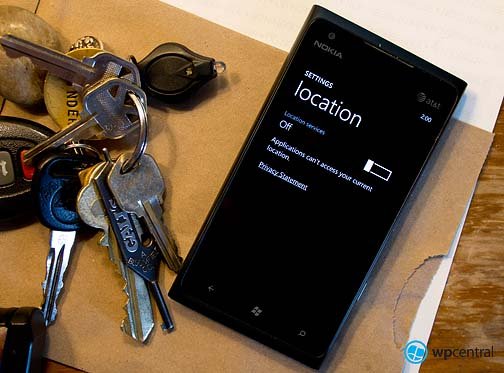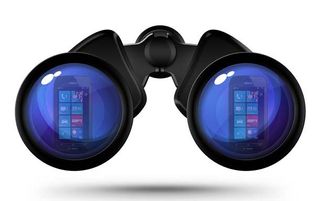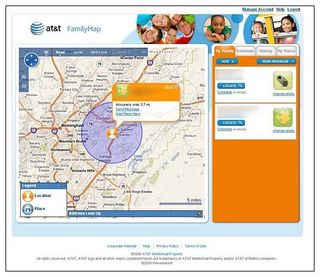Federal Court ruling opens the door to your Windows Phone location service

The location services on your Windows Phone can come in handy for navigation apps, finding local services and focus ad banners to content relative to your location. It also allows wireless providers and OS manufacturers to provide location services to allow customers to locate their phones if lost.
A recent Court ruling may have opened the door for law enforcement to use the same location services to track you without a warrant (at least in the Sixth Circuit). The case in question involves a drug dealer, Melvin Skinner, who was tracked by Federal Agents using his cell phone location services. Agents received Court authorization to obtain information on the cell phones used by Skinner that was in turn used to track his location. The tracking information obtained by law enforcement not only connected Skinner to the crimes but would also lead agents to his location for arrest.
At trial, Skinner objected to the use of the GPS data, the Federal District Court denied his objections. Skinner would eventually be convicted on drug trafficking charges and sentenced to 235 months imprisonment. Skinner would appeal his conviction, based in part on the claim the tracking of his phone was a violation of his 4th Amendment rights. The U.S. Court of Appeal for the Sixth Circuit heard the case and issued it's ruling yesterday (here is the full brief).
In a nutshell, the Court upheld the conviction citing that no Fourth Amendment violation occurred because there was no expectation of privacy present and a warrant was not required to track his cell phone. Because of the Circuit in which the ruling came from, it will likely overturn an earlier Ohio State Supreme Court that required warrants to track cell phones.

Several issues come into play with this ruling from the fact that Skinner purchased these phones under a false name and lacked standing to object to the "pinging" of the phones to determine location was the least intrusive means where other cases dealt with greater intrusions by law enforcement. While I'm all for convicting those who break the law, the ruling made me pause beyond the effects it had in this particular case.
In the ruling, Justice Rogers notes
"There is no Fourth Amendment violation because Skinner did not have a reasonable expectation of privacy in the data given off by his voluntarily procured pay-as-you-go cell phone. If a tool used to transport contraband gives off a signal that can be tracked for location, certainly the police can track the signal."
Additionally in a footnote, Justice Rogers extends the lack of an expectancy of privacy to innocent actors as well as those using phones in the commission of a crime.
Get the Windows Central Newsletter
All the latest news, reviews, and guides for Windows and Xbox diehards.
Maybe it should be a case where the expectation no longer exists when the phones are used in the commission of a crime but I would argue that there is an expectancy of privacy to our Windows Phones location services. If there wasn't anyone would be capable of tracking any cell phone with location services. If there wasn't wireless providers or OS manufacturers would have language in their privacy policies along the lines to indicate that your information will only be disclosed in order to comply with the law or respond to a lawful request or legal process.

The ruling equated the expectancy of privacy in these cases to a getaway car driver expecting his license plate to be private if they thought they had fled unseen. But that's the key.. anyone can see a license plate but not everyone can see your location services. Even with Microsoft's find my phone feature or AT&T's Family Map, while you have access to the technology to track a phone you are only allowed to track your phones. If no expectation of privacy existed, anyone could obtain the information and track your phone.
Again, I am all for giving law enforcement the technological tools to combat crime but in the process those tools shouldn't be abused. Enter the need for a warrant. A warrant gives police actions judicial scrutiny and adds a layer of protection against abuse, as well as a layer of credibility to the case they are building. Yes, there are situations that can exist that allow for warrantless searches but I'm just not sure if tracking a phone's GPS signal is one of them.
We aren't sure if this issue will make it to the next step, a review by the United States Supreme Court, or if other Federal Districts will adopt the same point of view should a similar case cross their bench. I do think that this issue has the potential to be a slippery slope opening the door for abuses. On the conservative side, one could argue that if you aren't doing anything wrong why worry? But what if those who are doing something wrong uses your location data against you?
If you use your Windows Phone in the commission of a crime, it shouldn't be immune from tracking or monitor. There just needs to be checks and balances in place to prevent abuse from authorities or to prevent our Windows Phones from being used against us.
Source: ARS Technica
George is the Reviews Editor at Windows Central, concentrating on Windows 10 PC and Mobile apps. He's been a supporter of the platform since the days of Windows CE and uses his current Windows 10 Mobile phone daily to keep up with life and enjoy a game during down time.
